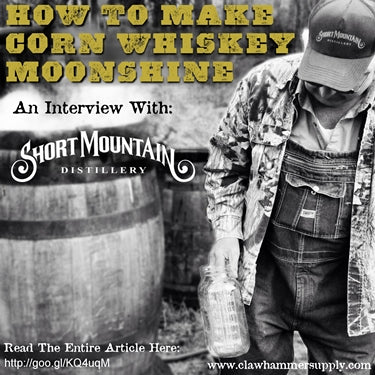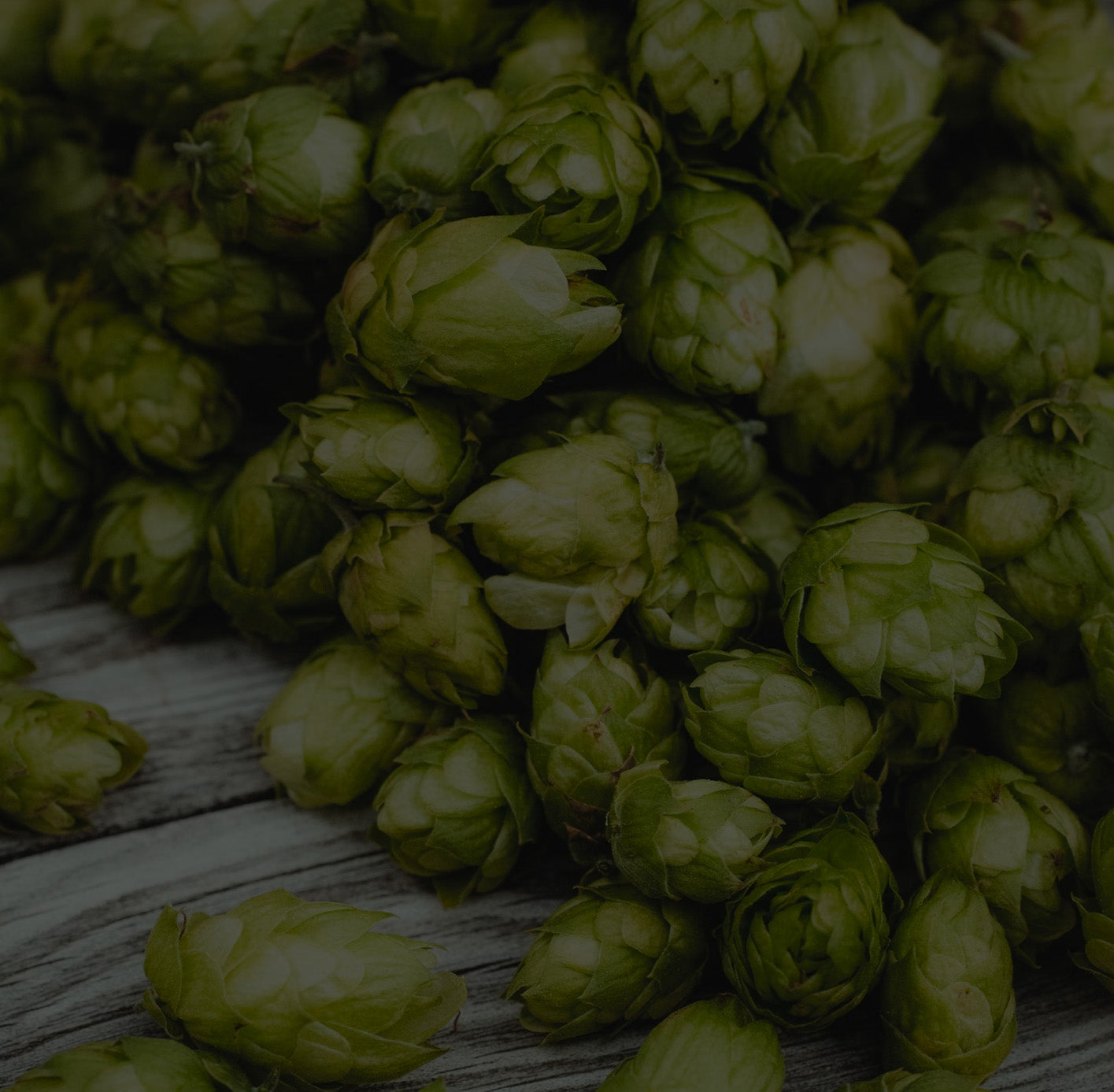 We were recently given the opportunity to interview the good folks at Short Mountain Distillery, in Woodbury, TN. Short Mountain's authentic Tennessee moonshine is a product of the creative and entrepreneurial spirit of Billy Kaufman; technical contributions from their master distiller, Josh Smotherman; and a combined 100 years of knowledge and experience from local legends, Ricky Estes and Ronald Lawson. They make some of the best legal firewater around and were gracious enough to share some of their secrets with us. Enjoy!
We were recently given the opportunity to interview the good folks at Short Mountain Distillery, in Woodbury, TN. Short Mountain's authentic Tennessee moonshine is a product of the creative and entrepreneurial spirit of Billy Kaufman; technical contributions from their master distiller, Josh Smotherman; and a combined 100 years of knowledge and experience from local legends, Ricky Estes and Ronald Lawson. They make some of the best legal firewater around and were gracious enough to share some of their secrets with us. Enjoy!
Secrets of Making Good Moonshine
I think everyone can agree that all moonshine is not created equal. Our new friends at Short Mountain Distillery would definitely agree with this proclamation. They make an award winning white whiskey, and it is no coincidence that they're willing to do a lot of things that other legal moonshine distilleries aren't. For starters, they use whole grains grown right on their farm in Woodbury, TN, and a secret recipe passed down from one generation to the next by local moonshiners. They also use a unique sour mash process to process and ferment their ingredients.
We jumped on the opportunity to ask the Short Mountain Distillery team about their award winning product and the process they use to produce it. To summarize, what we learned was this: making good moonshine is part art, part science...and the rest is a secret! Of course, they kept a few things to themselves, but you'll be surprised what they were willing to divulge in this not-to-miss interview.
Sour Mashing
Clawhammer Supply: We're vaguely familiar with several versions of sour mashing processes. How are you guys doing it? Can you give us a brief overview? Some of the wash (fermented mash) is left in the fermenter, right? Do you add backset from the still back to the fermenter?
Short Mountain Distillery: In our sour mashing process we wait for fermentation to subside and the cap (grains suspended on top of the fermenter via carbon dioxide) to fall and settle to the bottom of the fermenter. We then transfer the wash from above the spent grains to our still. Roughly one half of the spent grains are then removed and sent out as livestock feed. The other half remain in the fermenter to carry over our yeast and bacteria flavor profile. These reused spent grains also help provide an initial acidity in the next batch. We do not add pot tail (wash stripped of alcohol) to our next batch, although this is a common practice.
Clawhammer Supply: So, if we understand sour mashing correctly, yeast does not need to be added to each batch of mash. What strain of yeast did you initially start with? Was it a packaged distillers yeast, a beer yeast or wild yeast?
Short Mountain Distillery: It is true that yeast does not have to be added to each batch of mash for a subsequent fermentation, but I strongly advocate that you do rehydrate and pitch a fresh batch of yeast for each new batch to supplement the recycled culture which has a questionable viability. This will aid in more predictable fermentation times and flavor profiling while simultaneously ensuring that bacteria does not become the dominant organism, resulting in stuck or lost fermentation. Our original strain is a proprietary blend of an active dry distillers yeast, an active dry bread yeast, and wild yeasts and bacteria found in our grains and atmosphere.
Clawhammer Supply: Is temperature control important? If so, what temperature do you try to maintain during fermentation?
Short Mountain Distillery: Temperature control is very important in keeping flavor consistency and preventing loss of fermentation through thermal death of yeast. Our Short Mountain Shine has a relatively high fermentation temperature. The mash sets in at around 88*F and we do not let it cross the 98*F threshold.
Clawhammer Supply: Do you ferment in open tubs or closed containers? Why?
Short Mountain Distillery: We enjoy open top fermenters. You would not want to ferment a beer in an open top fermenter due to the uncontrolled access of microorganisms to your batch resulting in off flavors and sourness. This is not so with distilled spirits. Many of the flavors introduced by ambient microorganisms add a pleasant note to distilled spirits. Open top fermenters are also easier to clean.
Clawhammer Supply: What is the target ABV for your wash (before it gets distilled)? With nutrients and special yeasts, it's possible to make wash that is upwards of 20% alcohol. Of course, more is not always better. Can you tell us where your wash usually lands and maybe provide some info on why you shoot for that target?
Short Mountain Distillery: We use a specific gravity hydrometer to calculate our potential abv. The initial density of the Short Mountain Shine mash is usually at 1.068 S.G. At this starting density our completed fermentation will have an abv content in the 9% range. Starting gravities in excess of 1.070 tend to have extended fermentation times and risk becoming stuck when using traditional yeast strains. You can use alternate yeast strains such as turbo yeast (which have an increased tolerance to alcohol) to bump your initial density, but these yeast strains generally produce a distillate you would rather put in your vehicle instead of your mouth.
Clawhammer Supply: Would it be possible to do a sour mash on a small scale setup?
Short Mountain Distillery: It is absolutely possible to do sour mashing on a small scale setup. It actually seems to be preferred by many small scale distillers. Fermentation vessels are generally more affordable when they are not required to seal airtight with a air-lock. There is also a realization of financial savings from batch to batch as some of the fermentables carry over.
Ingredients
Clawhammer Supply: I noticed on the label of the bottle it says 30% grain and 70% cane… any chance you will let us know what the 30% grain is comprised of? Is it all corn? Is it a special kind of corn?
Short Mountain Distillery: The 30% grain is comprised mostly of corn, although there is another grain we use in the Cannon County traditional recipe (we are sworn to secrecy). As far as corn profiling, any corn will work. Many a moonshiner has his or her preference, but we have not noticed an overly perceivable change in taste resulting from the use of various corn strains. Perhaps if corn were a greater percentage of our grain bill this would be so.
Clawhammer Supply: Why have you chosen cane to supplement the grain with sugar? Does this have anything to do with keeping true to the tradition of the moonshine made in your parts? Is there any particular reason you use cane sugar?
Short Mountain Distillery: The reason we use cane sugar is to keep true to the Cannon County recipe. Illegal moonshiners like to keep their time at the Still at a minimal, and cane sugar incorporates itself quickly into the mash.
Distilling
Clawhammer Supply: Do you do a stripping run and then a spirit run?
Short Mountain Distillery: Yes. We do a stripping run in which we transfer 250 gallons of wash (8-10% abv) to our 250 gallon Column and Kettle Still (no reflux is activated at this stage). We generally collect 40 gallons of 90 proof spirit on a stripping run. After we have collected the spirit from six stripping runs we then transfer the 240 gallons from our stripping runs to our Still. This is our spirit run and this is when we activate our four trays and dephlegmator (internal condenser), thereby initiating reflux and separating the types of alcohols. We use taste and smell to make our heads and tails cuts.
Clawhammer Supply: What type of still(s) do you use? Do you use a pot still or a still with a column and plates? What size are your stills? Are they copper, stainless, or a combination of both?
Short Mountain Distillery: We have a 120 gallon Pot Still in our Shiner's Shack in which the ole-timey moonshiners run our Short Mountain Shine recipe through. We also have a 250 gallon, 4-tray, steam jacketed Column and Kettle Still with a dephlegmator and pumped reflux we use for the shine and our other recipes. Our stills are all copper. The shine made from both Stills is blended to create our Short Mountain Shine.
Clawhammer Supply: Why did you choose the material you did for the construction of your stills?
Short Mountain Distillery: We chose copper as the material of construction for our Stills partially because of its traditional use, but also because copper binds with hydrogen sulfide and isobutyl mercaptans and forms copper sulfate. The copper sulfate tends to bond with fatty acids and oils to eliminate skunky and rotten egg smells from the spirit.
Clawhammer Supply: Do you make heads, hearts, and tails cuts? Could you tell us a bit about what percentage you end up with each of these? (e.g. 10% heads, 40% hearts, etc...). Do you save your tails for the next run?
Short Mountain Distillery: We do make heads and tails cuts. The hearts collected from a standard spirit run is usually around 45% of our total collection. The heads and tails collected usually comprise around 55% of our collected spirits. The hearts are the best portion and are added to our collection of finished spirit to be bottled. The heads and tails are transferred into a 250 gallon stainless tote and add more heads and tails from subsequent spirit runs are added until the tote is full. We then make a recovery run of the heads and tails wherein we make heads and tails cuts on the heads and tails. This run is conducted over two days as this is the last chance to recover any delicious alcohol from this spirit.
General Questions
Clawhammer Supply: What would you say is the most rewarding part of owning / operating a distillery?
Short Mountain Distillery: Owning a distillery is all consuming. If you aren't careful you will be totally consumed by minutia. Finding out what aspects are truly important to the success of our business is difficult. I love streamlining our operation which makes everyone happier.
Clawhammer Supply: Are you hiring? We have a lot of folks who would love to work for your distillery!
Short Mountain Distillery: We are not hiring at the moment, but we are always happy to get new resumes.
Thanks for your time and we look forward to stopping by the next time we're in the neighborhood!
If you're interested in picking up a bottle of Short Mountain Shine, you can do so right here. Enjoy!
Checkout or sour mash recipe, based off of the info given to us by Short Mountain in this interview, here.
Remember, it is illegal to distill alcohol at home for consumption. Do not do this.






Leave a comment